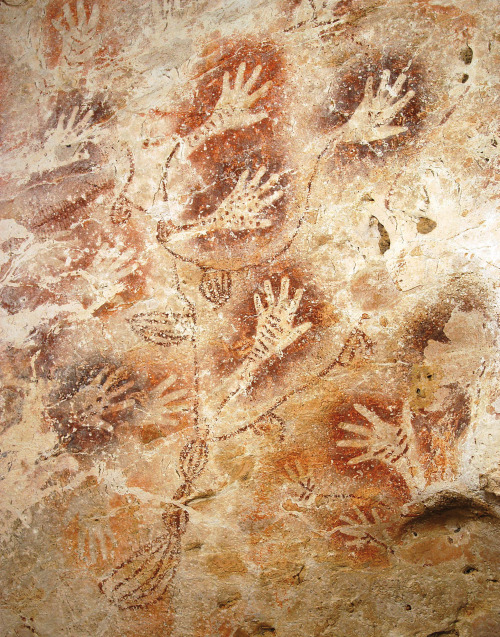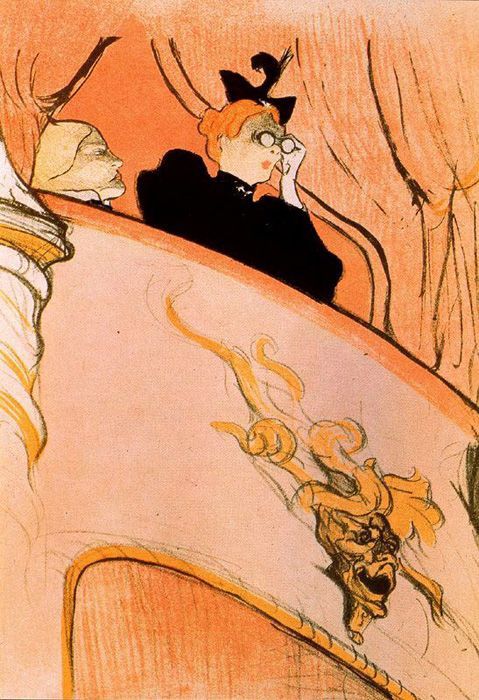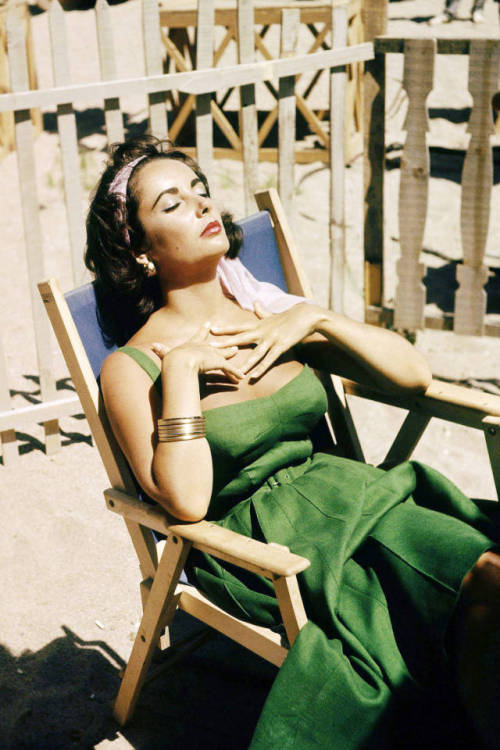Latest Posts by farkash-gallery-blog - Page 4

Frank W. Benson - Summer of 1909

Hand-stencil rock art from Gua Tewet, Borneo, thought to be over 10,000 years old.
Photo courtesy of Luc-Henri Fage, via the Wiki Commons.

Happy birthday, Ian McDiarmid! We have watched your career with great interest.

Jean-Étienne Liotard, The Chocolate Girl, 1744-45, pastel on parchment, 82.5 x 52.5 cm, Gemäldegalerie, Dresden. Source
Jean-Étienne Liotard was a Swiss-French painter specialising in portraits and figurative scenes. This is one of his most famous works and was created using pastels on parchment. Liotard will be the subject of a major exhibition at the Royal Academy this autumn.

Georges Braque, Glass on a Table, 1909-10, oil on canvas, 33.1 x 37.2 cm, Tate Liverpool. Source

just opened:
“HYSTERIA: Spatial Conversations with Florine Stettheimer” Rosson Crow
Sargent’s Daughters Gallery, 179 East Broadway, NYC
In this recent body of work, Crow debuts a new technique of Xerox transfers layered with painting on the canvases. Crow has long been fascinated by history and the psychology of interior spaces, and has addressed subjects as varied as French Revolutionary interiors, New York City graffiti and the films of Alfred Hitchcock. This exhibition represents Crow’s response to the paintings of Florine Stettheimer (1871-1944), a New York artist whose paintings date from the 1910s to the 1940s. Although considered a very important artist of her time, (Marcel Duchamp organized her retrospective exhibition at MOMA in 1946, and she was included in the first Whitney Biennale in 1932) Stettheimer’s works are relatively unknown today as she steadfastly refused to sell or show them in galleries. Since her death, they have often been dismissed as overly “feminine” and “eccentric” and today Stettheimer remains known mostly to a growing cult of women artists on both sides of the Atlantic who love and claim her influence. - thru May 17

It may be summer outside, but this painting is giving us chills. Don’t miss “Discovering the Impressionists: Paul Durand-Ruel and the New Painting” before it closes on September 13. “Lavacourt under Snow,” c. 1878–80, by Claude Monet (The National Gallery, London. Sir Hugh Lane Bequest, 1917)

West African women, unlike their East African sisters, eschew the bright reds and other primary colors. They allow themselves black, white, ocher, yellow and beige earth tones. They do employ blue, but it is the blue black, electric indigo or the soft, subtle blue of West African mornings. Maya Angelou, Art of Africa, Even the Stars Look Lonesome.
Design Patterns from Ghana. Though the colour palette is broader than defined by Maya Angelou I like that the excerpt distinguishes the way colours (and of course designs) vary in African countries and in particular how this is tied to the landscape.
The first pattern reminds me a little of a kolam called Sita Mudichu (Sita’s Knot). and the last of the simple pulli (dot) kolam.
Pic Source.

Henri de Toulouse-Lautrec -The Box with a Gilded Mask

Marilyn and Marlene
Photo by Milton Greene, 1955
Glamorous❤Vintage❤Soul

Jugend magazine cover (Issue 47) by Julie Wolfthorn, 1897.
Julie Wolfthorn (1864-1944) was a German-Jewish female painter who created many illustrations for Jugend and was a well known and established portrait painter in Germany. Since the art schools did not accept women at that time, she travelled to Paris in the 1890′s to learn painting techniques and skills. She later became involved with the Berlin Secession and became a prominent member of it. Among her clients and friends were many female artists and important figures in society. Her life did not end well though. She later died in her 70′s at a camp established by the SS for Jewish citizens. She was said to have continued her drawing despite the horrific conditions there.
(Source: berlin-woman, wikipedia)

Elizabeth Taylor

There was a burgeoning interest in posters and poster art in the US in the 1890s. One manifestation of that interest was the appearance of magazines dedicated to the subject. This poster is taken from a short-lived example of the genre, called The Poster. It lasted only 5 issues, January-May, 1896. This fiery poster is from the April issue.

See Full Resolution: Click Here

On Wednesday, July 29, over 700 people attended the members’ opening at The Contemporary Jewish Museum (The CJM) for Amy Winehouse: A Family Portrait and the companion exhibition, You Know I’m No Good which are on view through November 1, 2015

Café Schmus, the Jewish Museum Berlin, Germany by NOVONO
Source: Ken Lee 2010 (flickr)


Hanukkah at the White House
Among the gifts from heads of state that are in the holdings of the Harry S. Truman Presidential Library and Museum is a menorah presented to President Truman by Israel’s first Prime Minister, David Ben-Gurion. The menorah dates back to at least 1767, when it was donated to a synagogue in Buergel, Germany.
The menorah was used in the synagogue until 1913, when it was found broken in pieces. A man by the name of Siegfried Guggenheim asked for the broken pieces and provided a replacement. The Guggenheim family restored the old menorah for their personal use, and brought it to the United States when they immigrated in the 1930s. Eventually, the menorah was acquired by the Jewish Museum in New York.
When Prime Minister Ben-Gurion visited the United States in 1951, he searched for a suitable gift to give to Harry S. Truman in light of the President’s recognition and support of the State of Israel. The Jewish Museum suggested the menorah, and Prime Minister Ben-Gurion presented it to Truman on his birthday, May 8, 1951. Read More
Photos: Menorah presented to Harry S. Truman by Prime Minister David Ben-Gurion and Ambassador to the U.S. Abba Eban, of Isreal on May 8, 1951. The menorah is currently on Display at the Truman Library.
Happy Hanukkah!



July 14th 1862: Gustav Klimt born
On this day in 1862, the Austrian artist Gustav Klimt was born in Baumgarten. Raised in poverty, the young artist entered art school in Vienna when he was fourteen years old. Klimt was successful in his studies and his highly symbolic art quickly received attention, leading to his earning commissions for theatres and churches. In 1897 he founded the Secession Movement, which intended to promote the work of young artists and introduce alternative art forms to Austria. His work was well received, even being presented at the Paris World Fair. However, his erotic art drew disdain from his contemporaries who criticised its graphic depiction of the human form. Klimt fought such censorship of his work, and his ‘golden phase’ produced masterpieces like The Kiss (1907) and The Tree of Life (1905), which were widely praised. During this time, Klimt employed the distinctive gold leaf in his art, which was not an accident, as Klimt’s father was a gold engraver. Klimt died from pneumonia in 1918, and his art has become increasingly appreciated since his death, often fetching record-breaking prices at auction.
“Enough of censorship. I want to break free“

How does your garden grow?
Not very tall, if it’s full of dachshunds.
This peculiar illustration comes from the guest book of the Hewitt family, the founders of the Cooper Hewitt, Smithsonian Design Museum. The book spanned more than 50 years and included signatures and more involved artwork and poems.
Lacking context or explanation, “Dachshund Nursery” was probably done by Caroline King Duer, a frequent visitor to the Hewitt’s Ringwood Manor, in 1896. Learn more from cooperhewitt‘s blog.

Curator Daniel Palmer at the Whitney Museum speaking about artist Ben Shahn

Unique Original oil painting on canvas of Rabbi Yosef Shalom Elyashiv by OriDvir (3500.00 USD) http://ift.tt/1znSzWR

Studying Torah on We Heart It. http://weheartit.com/entry/67125142/via/aestheticpleasures

Summer Day in Jaffa.
Paintings by Alex Levin

Feast Day (Rabbi with Lemon) by Marc Chagall. 1914, oil on canvas.
Currently making a presentation about this artist, whose work I’ve seen in the Tretyakov Gallery.

“Unrolling the Torah”, oil painting by Mané-Katz, from 1938






Some of the very charming,stylish and jewish related pictures of Jacob Steinhardt. Read about him here.

The synagogue in Chodorov, in western Ukraine, was built in 1652 completely of wood and has remarkable, multicolored painting on its walls and ceiling. The artist drew his inspiration from Jewish heritage, Hebraic motives, the Bible and Talmud and from hand-written, illuminated manuscripts from the Middle Ages. Reconstruction of a section of the ceiling at Tel Aviv Museum of the Diaspora.
More beauties here.

“Jewish Wedding” by Jozef Israëls (1824-1911),1903

MARC CHAGALL - To My Betrothed (1911)
Gouache and oil on paper. 61 x 44.5 cm
![A Decorative Synagogue Plaque Indicating The Times Of Prayer, [detail], By Abraham Pavian, Hermannstadt](https://64.media.tumblr.com/3c09b59d318e9841be60cf7bc8bb7fe7/tumblr_n555s5wYhu1rfe7gjo1_r1_500.jpg)
A Decorative Synagogue Plaque Indicating the Times of Prayer, [detail], by Abraham Pavian, Hermannstadt (Sibiu), Romania, (1878), multi-coloured paint on paper with metal dials set in a wood and glass frame, 40.6 x 55.9 cm, private collection. The five manual clocks designate the times of the daily morning and afternoon prayer service as well as the times of the services for the Sabbath prayers. The Hebrew inscription around the border, comprised of verses from the book of Psalms (88:13-17), alludes to the morning prayers, source: sothebys.com.